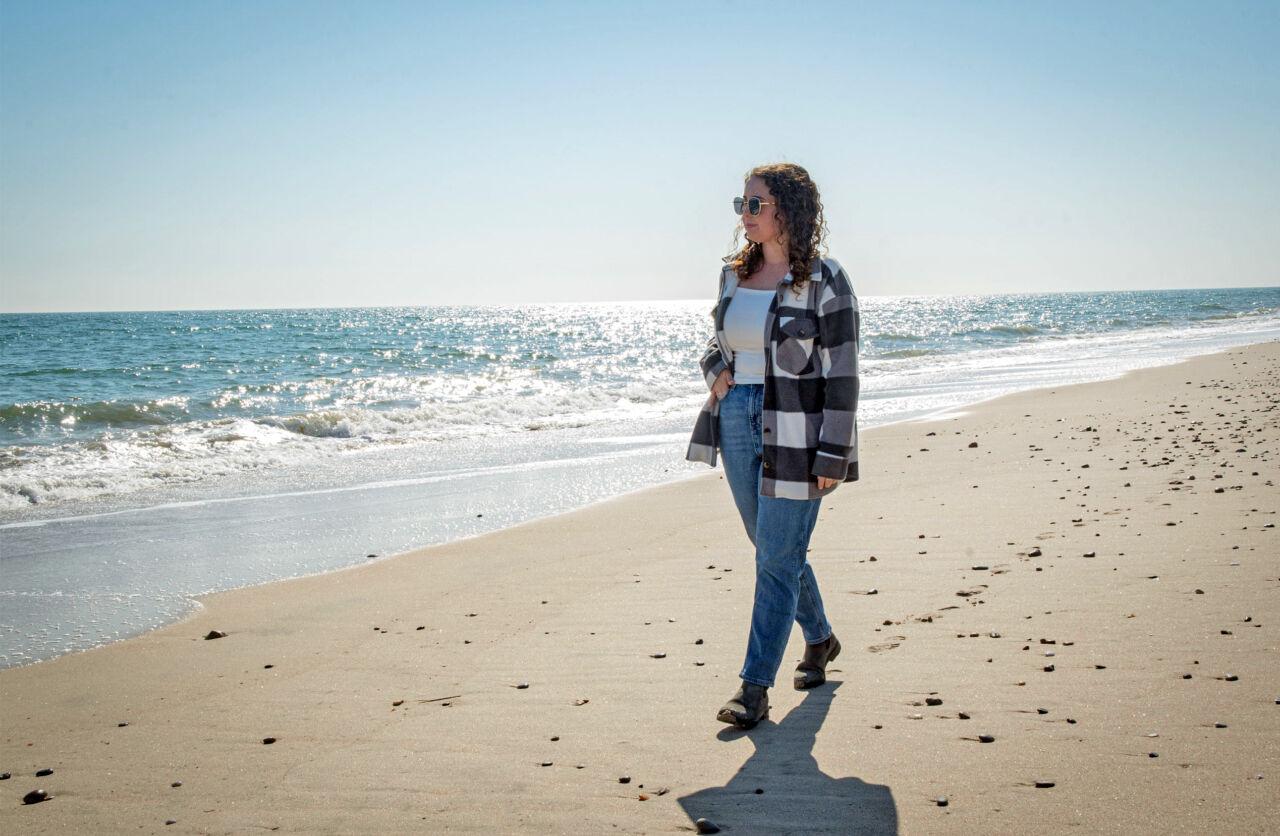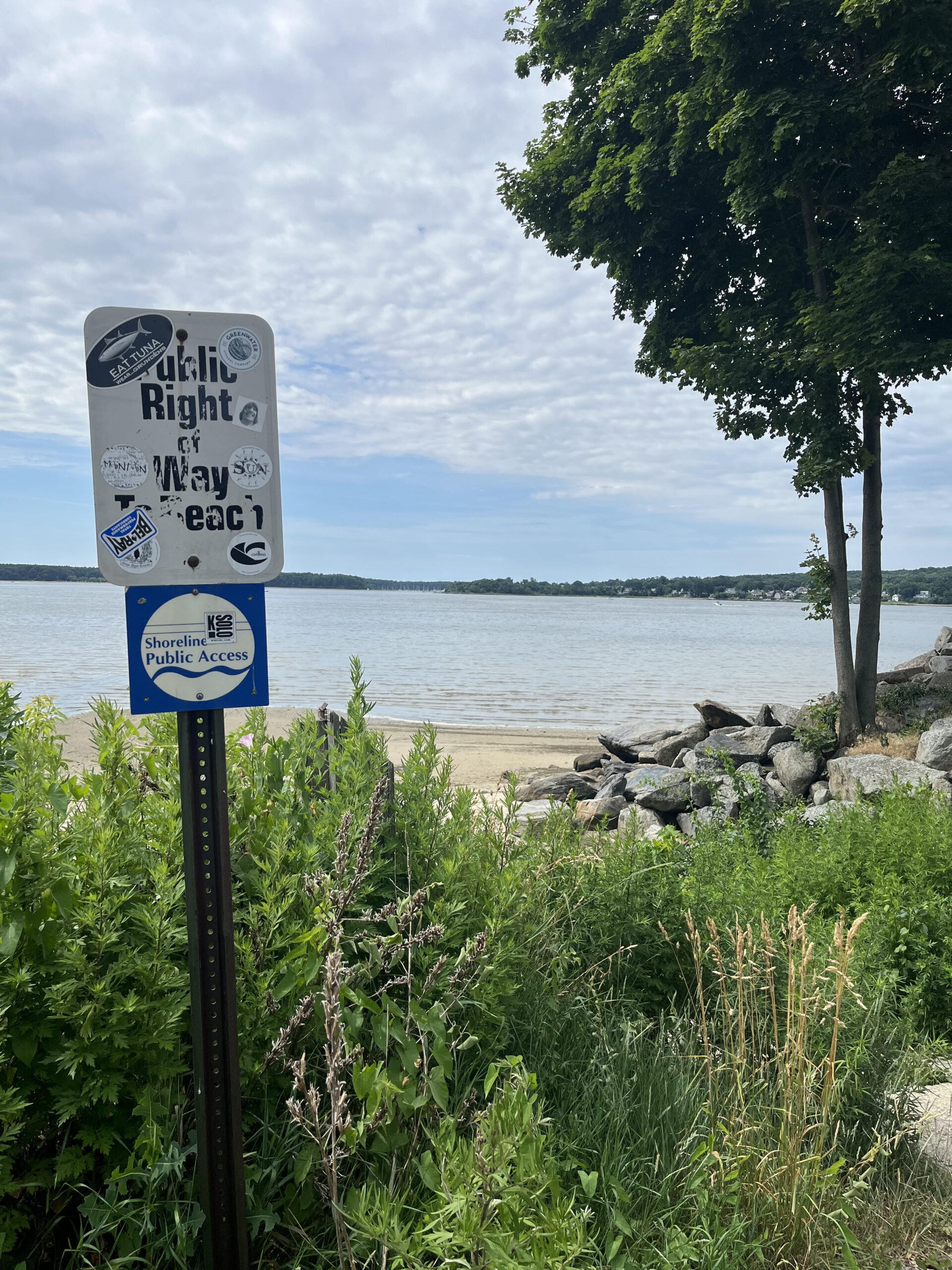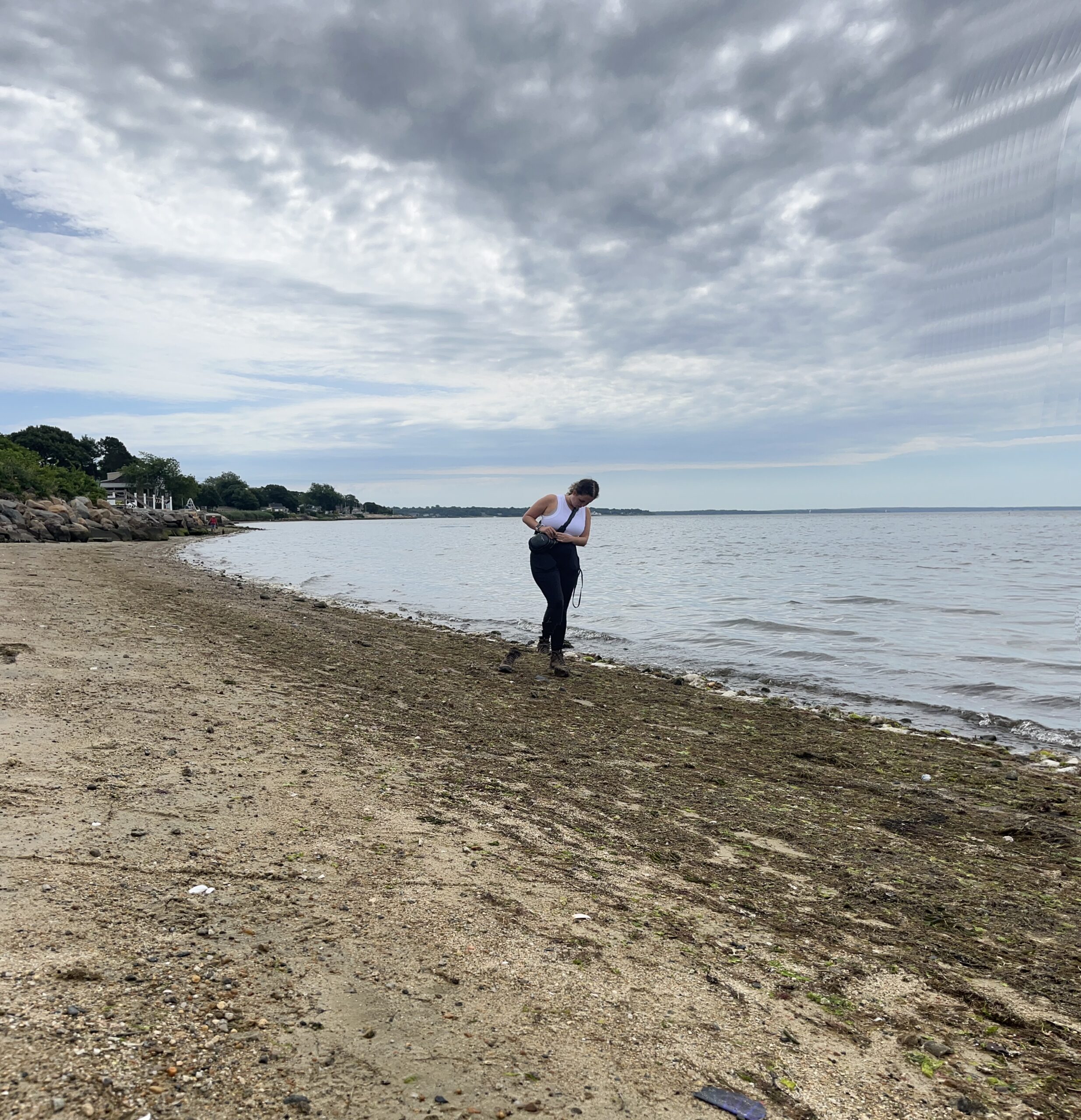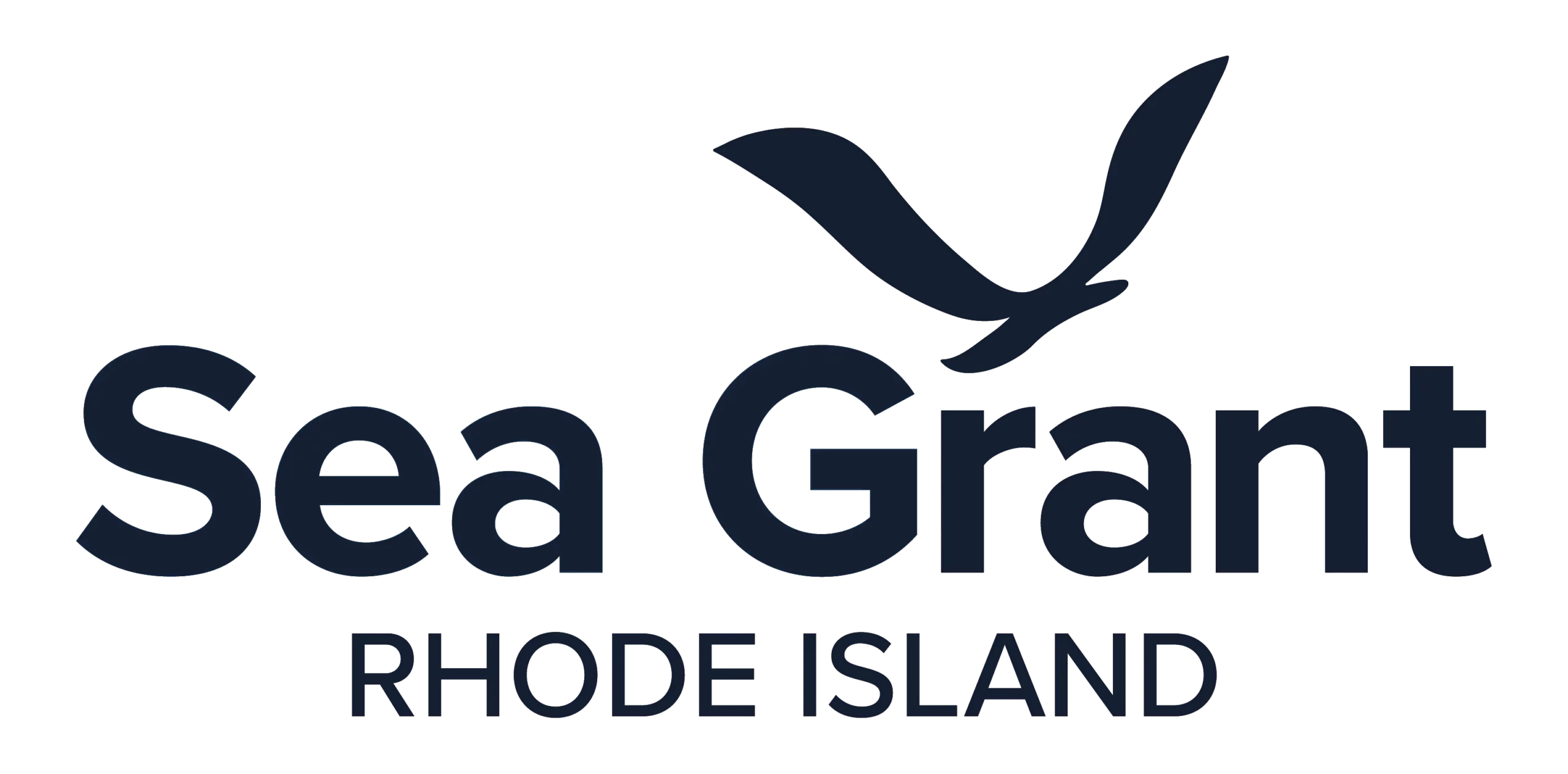
Photo credit: Nora Lewis
Courtesy of Marybeth Reilly-McGreen | URI Today
Though just 37 miles wide and 48 miles long, Rhode Island boasts 400 miles of shoreline. And graduate student Erica Meier knows most all of its 400-plus public access points.
Meier spent the summer and fall of 2022 visiting and recording public shoreline access points along the coast with Rhode Island Sea Grant Communications Director Monica Allard Cox to update the website Shoreline-RI.com.
It was a four-month project Meier completed as a Rhode Island Sea Grant-University of Rhode Island Masters of Environmental Science and Management (MESM) Communications Fellow working with Cox.
It occurred to Meier that the data they collected told a complex story that lent itself to interactive digital storytelling. A digital story map would allow her to combine her research and field work with all that Meier was learning in her geographic information system mapping, political ecology, and environmental thought and behaviors classes.
“Story maps have emerged as a powerful tool to visualize large amounts of information in a visually appealing way with the ability to communicate complex issues while telling a story in a unique way,” Meier said. “This project works to create a story map about shoreline access in Rhode Island that specifically details the different types of access throughout the state and explains the authorities and institutions behind each while telling a story about what visiting so many of these sites reveals.”
Meier expects to have her story map finished in the next year. She’s received a grant from the DWELL (Digital Writing Environments, Location, & Localization lab of Madison Jones, assistant professor of writing and rhetoric/natural resources science, which will allow her to complete the project. In addition to graduate research grants, DWELL also invites undergraduates to apply for Undergraduate SciComm Fellowships.


“One of the reasons I chose URI’s MESM program is because I wanted experiences that have tangible and immediate public outcomes,” Meier said. “The Sea Grant fellowship appealed to me because the work that they do is applicable and community-based.”
The MESM program offers students flexibility in their choice of coursework. Meier has studied communications and public engagement through marine affairs courses in political ecology, environmental thought and behaviors, and environmental justice and equity. And then there are the experiential learning opportunities like the shoreline access project. Meier has also traveled to Indonesia to do coursework and observed local political debate concerning Indigenous People’s rights to access public land.
“In the communications and public engagement world, having a variety of experiences is important—especially in understanding different perspectives. And people in the industry expect you to be able to do a wide variety of things, to have a broad skill set,” Meier said. “I can say that I’ve participated in actual academic research and taken a class across the world. I’ve edited video about coastal resilience. I’ve developed surveys and conducted interviews … It’s been amazing to put my education to use.”
